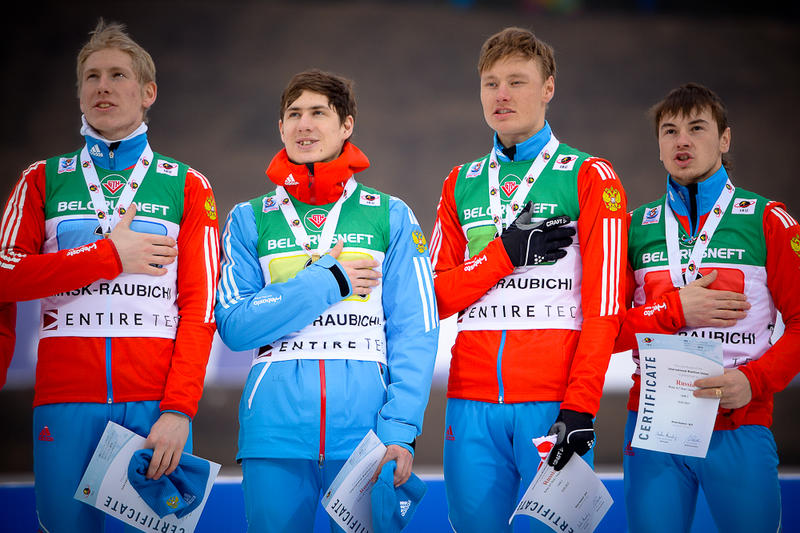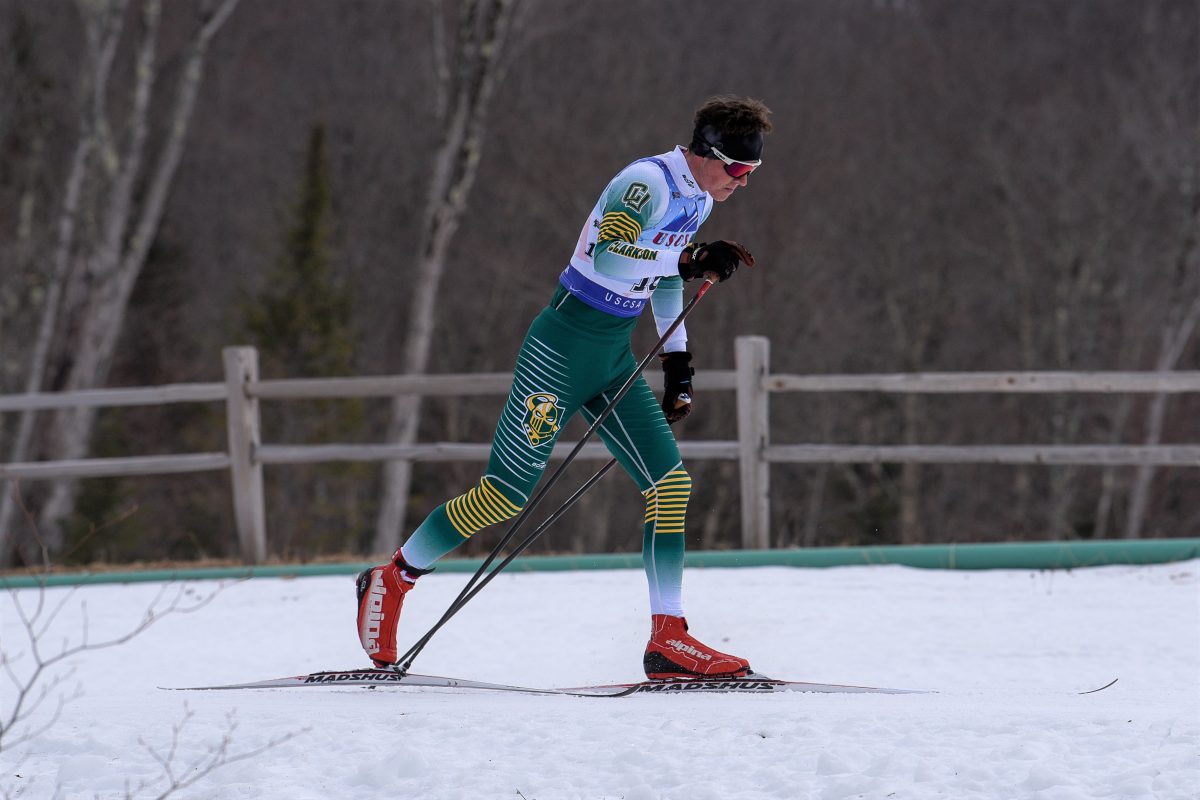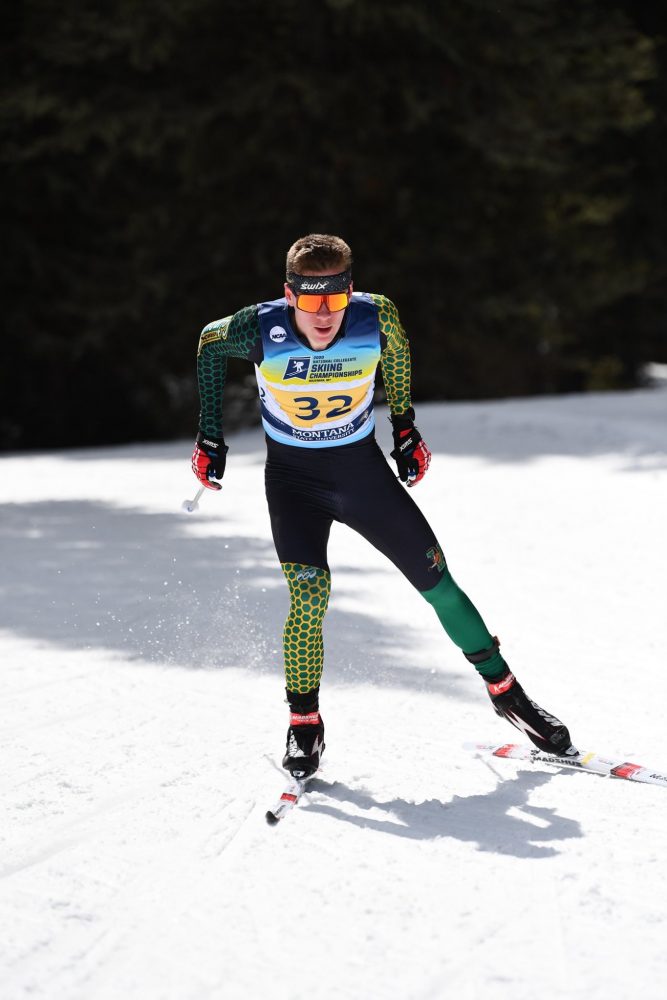
So far, five athletes in the nordic sports world have been named as testing positive for meldonium, the metabolic modulator which was added to the World Anti-Doping Agency (WADA) Prohibited List on January 1, 2016.
Of those, one has agreed with an international governing body to put her case on ice, and two more may have their provisional suspensions lifted. So what’s going on – did they break the rules, and will they miss World Cup action next season?
| Name | Country | Sport | Governing Body | Current status |
| Olga Abramova | Ukraine | Biathlon | IBU | Provisional suspension; at April hearing, Anti-Doping Hearing Panel deferred final decision until after WADA report released |
| Artem Tyshchenko | Ukraine | Biathlon | IBU | Provisional suspension lifted |
| Eduard Latypov | Russia | Biathlon | IBU | Provisional suspension lifted |
| Eva Tofalvi | Romania | Biathlon | IBU | Provisional suspension; awaiting first Anti-Doping Hearing Panel |
| Kirill Vichuzhanin | Russia | Cross-county skiing | RUSADA | Provisional suspension lifted |
That’s very much under discussion, as WADA issued a directive offering amnesty to some athletes who had tested positive for meldonium, but it is still up to the international federations to implement it.
WADA is in the process of conducting several studies to determine how quickly meldonium is cleared from athletes’ bodies, as many of those who tested positive claim that they stopped taking the drug before January 1. The studies are not yet concluded, but based on some initial results WADA has suggested that concentrations around 1 μg/mL in urine samples may be associated with long-term excretion, rather than recent use.
Therefore, WADA suggests that until March 1, athletes with this low level of meldonium in their samples may be found with “no fault”, the organization wrote in a directive on April 11:
“The following options may be followed, at the discretion of the Results Management Authority when the results management is stayed:
-
The athlete continues serving his or her provisional suspension until the excretion studies results are available and a decision can be taken.
-
The provisional suspension is lifted. However, in this case, the athlete shall be informed that if it is later established based on the results of the excretion studies that he/she did take the drug on or after 1 January 2016, (i) all the results during the period in which the provisional suspension is lifted may be cancelled and prizes returned, and (ii) the ineligibility period ultimately imposed is likely to start on the date of the decision (with a credit for the provisional suspension already served).”
However, even then there are still likely to be consequences for the athlete.
“Given that the presence of meldonium in the athlete’s sample collected on or after 1 January 2016 constitutes an anti-doping rule violation, the disqualification of the athlete’s results shall (even where there is no fault or negligence) be dealt with in accordance with the applicable Code provisions. If the sample was collected in competition, then the results in the competition in question will be automatically disqualified in accordance with Article 9 of the Code,” the directive stated.
So where does that leave nordic athletes? The International Biathlon Union has requested to its Anti-Doping Hearing Panels to lift the provisional suspensions on two athletes, Artem Tyshchenko of Ukraine and Eduard Latypov of Russia. The press releases (here and here) indicated that their samples – collected on January 23 and February 14, respectively – contained less than the magic 1 μg/mL of meldonium.
A third biathlete, Olga Abramova of Ukraine, will continue to serve her provisional suspension, but the Anti-Doping Hearing Panel agreed to withhold issuing a final decision until September when the full results of the WADA studies are published.
The final biathlete affected, Eva Tofalvi of Romania, has not yet faced her Anti-Doping Hearing Panel. A 37-year-old veteran on the World Cup circuit, Tofalvi did waive her ‘B’ sample. The positive test came from a sample collected at World Championships in Oslo, Norway, in March.
A Russian cross-country skier, Kirill Vichuzhanin, was provisionally suspended by the Russian Anti-Doping Agency (RUSADA) earlier in April. The Russia news agency TASS reported that his suspension, too, has been lifted by RUSADA following the WADA directive.
Chelsea Little
Chelsea Little is FasterSkier's Editor-At-Large. A former racer at Ford Sayre, Dartmouth College and the Craftsbury Green Racing Project, she is a PhD candidate in aquatic ecology in the @Altermatt_lab at Eawag, the Swiss Federal Institute of Aquatic Science and Technology in Zurich, Switzerland. You can follow her on twitter @ChelskiLittle.



